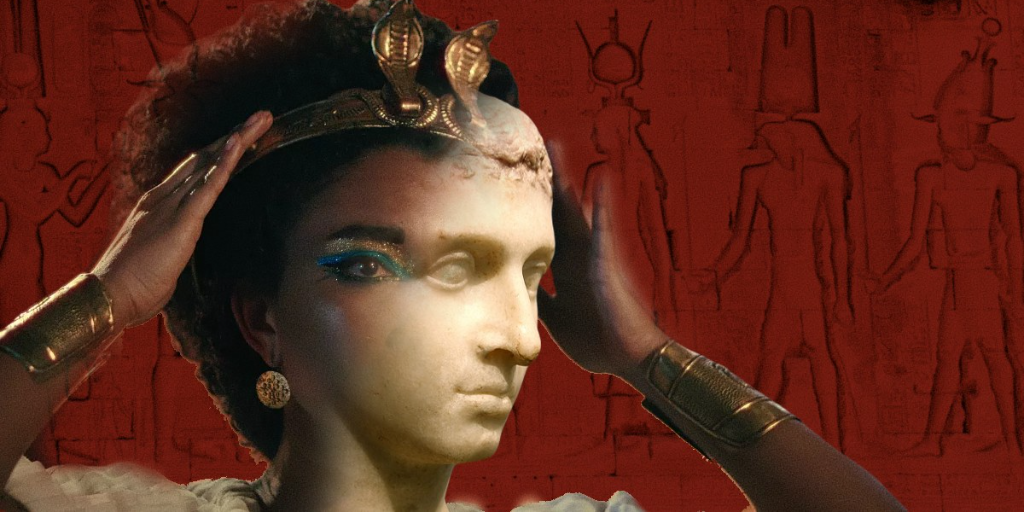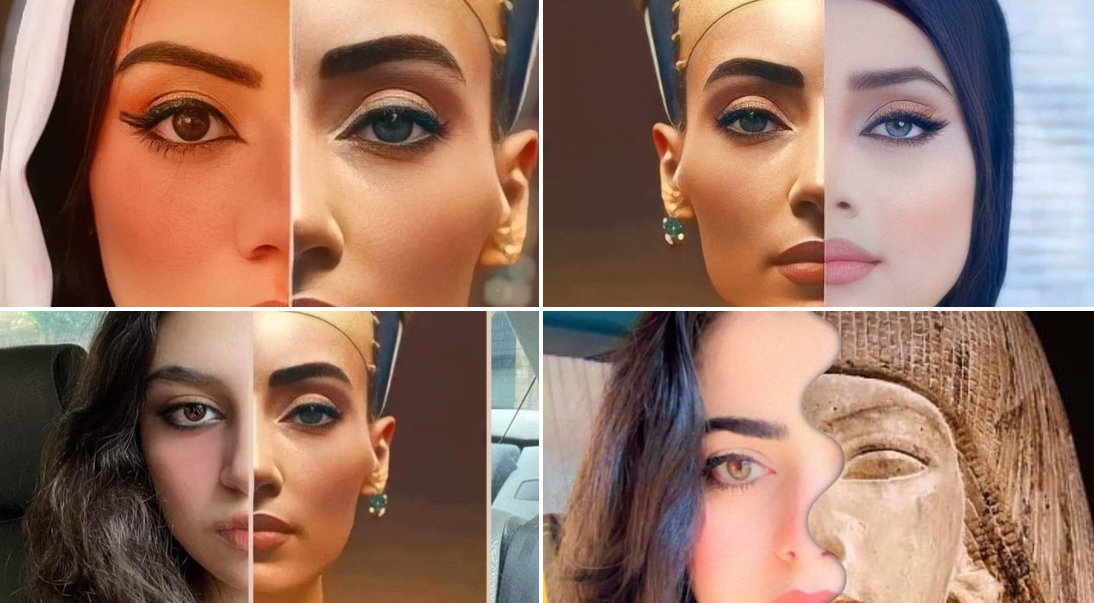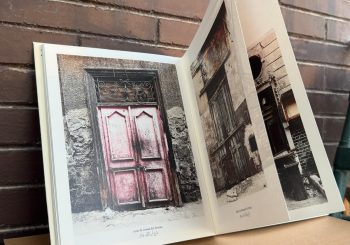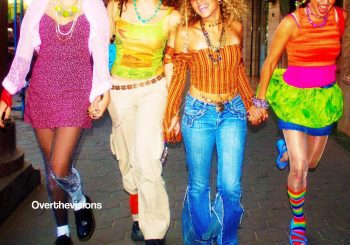Following the release of the controversial Netflix documentary series, Queen Cleopatra, Egyptian experts and youth were outraged, claiming that the show “falsifies Egyptian history” and “promotes Afrocentrism”. In the documentary, Cleopatra, one of Egypt’s most famous historical figures, is portrayed by Adele James, who is biracial. In the trailer, one of the talking heads says, “I remember my grandmother saying to me, ‘I don’t care what they tell you in school, Cleopatra was black’.”
The documentary sparked debate and received backlash from the moment the trailer was aired. Produced by Jada Pinkett Smith, the documentary falls under the African Queens docu series which aims to spotlight the life and reign of women leaders from Africa.
As a response, Egyptian youth launched a counter campaign with the hashtag #مصر_للمصريين (Egypt for Egyptians). In the campaign, young Egyptians shared their photos online with half of the picture including their face and the other half showing the face of kings, queens or everyday figures from ancient Egypt. Through these photos, the campaign aims to show the similarities between Egyptians today and ancient Egyptians.
Whether through online petitions, social media posts, or reports on Netflix, Egyptian youth have been keen on expressing their disapproval of the newly-released documentary and attempting to emphasize their lineage to ancient Egyptians.
On Sunday, 30 April, Egypt’s free satellite documentary channel AlWathaeqya announced its plans for the creation of a new documentary about Queen Cleopatra VII based on studies of historians, archaeologists, and anthropology experts.

WHY IS THERE SO MUCH CONTROVERSY?
Coined by African-American activists in the last century, Afrocentrism is a movement that promotes African culture and emphasizes its contributions to the development of Western civilization. It suggests, in particular, that ancient Egypt’s rulers and its population were black, yet that this fact was revised and ultimately wiped from Western and worldwide scholarship.
Cleopatra’s physical appearance and beauty has long been at the forefront of her legacy, and her physical appearance was often mentioned by artists and writers such as Shakespeare and early Greek scholars, who described her beauty in their poetry and writings. Ancient artwork, on statuary and coins, depicted her as plain, with a Ptolemaic ‘Greek’ nose.
Cleopatra was primarily of Ptolemaic Greek descent, with some Persian and Sogdian Iranian ancestry, according to scholars. This is based on the fact that her Seleucid family, which reigned over much of West Asia, intermarried with the Ptolemaic dynasty, a Macedonian Greek family.
The identity of Cleopatra’s unknown mother is the root of the controversy, as American archeologist and Egyptologist Betsy Bryan of Johns Hopkins University told Newsweek that the queen’s mother “has been suggested to have been from the family of the priests of Memphis. If this were the case, then Cleopatra could have been at least 50 percent Egyptian in origin.”
Furthermore, Cleopatra was the first Ptolemaic ruler to speak the Egyptian language, which, according to American archaeologist Duane W. Roller, could indicate “close association with an Egyptian speaker, perhaps her mother.”
Nevertheless, the debate around Cleopatra’s physical appearance overshadows her legacy as a ruler, and also promotes the fallacy that race is shaped purely by physical attributes and is only skin-deep.
Few historical artifacts, including coins and a bust, depict her as far from her rendition in the Netflix series.






Comments (8)
[…] Young Egyptians Create Viral Campaign Against Netflix’s ‘Queen Cleopatra’ […]
[…] Source link […]